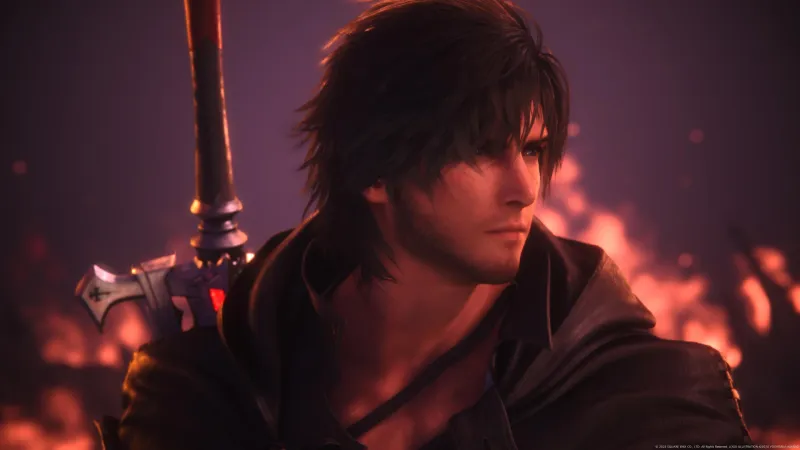
We’ve all been there. You’re playing a game you really like; the action is tight, the visuals are impressive, and the systems are engaging. Then a character opens their mouth, and the dialogue and how it’s delivered is so cringeworthy that you’re ready to jump ship. Sometimes that’s bad writing. But when we’re talking about a game from a different part of the world, it’s just as likely that questionable localization is the culprit. Localization and translation is difficult. Doing it exceptionally well is exceedingly difficult. Often, minute cultural differences in how storytelling is delivered in different places can add up; in the aggregate, those minor differences can alienate players from another region. Another contributing complexity is the way that language, facial expressions, and emotional tones can be so disparate in media from different traditions. In short, it’s no small task to take a game and make it accessible and palatable to an audience from a different part of the world. From early on in Final Fantasy XVI’s development, the team expressed an interest in telling a story rooted in Western fantasy archetypes and cinematic narrative. More than once, HBO’s Game of Thrones has been cited as a chief inspiration to the developers. If you’ve watched that show, the comparisons are almost inevitable after just a few hours of gameplay. But more than citing inspiration from a popular English-language show, Final Fantasy XVI captures the nuance of language and story presentation in English in a way that far outstrips previous Final Fantasy games. I’d go so far as to say it outdoes most Japanese-produced titles I’ve played in hitting the sweet spot. No doubt, a great deal of credit is due to localization director Michael-Christopher Koji Fox, and the team he worked with to help the game pop in its English versions. Talented writers and a stellar voice cast also deserve enormous praise. I suspect another major factor in the game’s success is how the game’s VO was recorded. When speaking with Koji Fox for our cover story on Final Fantasy XVI, he told my colleague Wesley LeBlanc that the team chose to record dialogue and complete facial capture in English first. I’m confident that one decision helped the game nail that “Western fantasy” aesthetic more than almost anything else because the pacing and flow of character interactions were rooted in delivery from English actors. Plenty of Japanese-produced media offers tension, compelling characters, and taut storytelling. But it’s often been challenging for many Japanese-produced games to capture some of that magic, and much of that can be attributed to the challenge of localization. Prior Final Fantasy games are as guilty as any of a mismatch between the gravitas of its story and a narrative delivery that doesn’t match, at least as it comes across to an English-speaking audience. From turns of phrase to the pacing of conversations, Final Fantasy XVI is the first time I can recall playing a franchise game and not being at least a little pulled out by something awkward. Romantic scenes maintain tension and focus. Big emotions don’t feel as overwrought as they often have in past entries. Casual conversations flow with general ease, even if and when they adopt an old-fashioned medieval fantasy vibe. Many of us fondly remember impactful relationships between characters in earlier Final Fantasy games. But compare the bumbling romantic overtures between Tidus and Yuna in Final Fantasy X with similar character dynamics in Final Fantasy XVI, and it’s clear that a notable evolution has unfolded in the interim. Even more recent entries, like the brotherly friendship of the leads in Final Fantasy XV, feel weirdly juvenile compared to the character connections expressed in this latest installment. During the earliest hours of Final Fantasy XVI, Cid’s pitch-perfect cadence and delivery helps sell the outlandish fantasy narrative, grounding it in a character you like and like to listen to. Clive fulfills the role of the taciturn and stern Final Fantasy lead but without being the often emotionally withdrawn and inaccessible figure that so many prior protagonists have been. Minor characters like shopkeepers and quest-givers feel approachable and believable rather than caricatures. Plenty of games and other media are undoubtedly best served by remaining rooted in the stylistic and language conventions of the place where they’re created and set. For instance, different considerations are likely adopted in localizing the Like A Dragon games than a Final Fantasy game that aims to borrow liberally from Western fantasy. But I’m happy to see the challenging discipline of localization continue to confront those subtleties on a case-by-case basis; in the case of Final Fantasy XVI, it has paid dividends. Given the prioritization of the English language in Final Fantasy XVI, I’ve found myself wondering how the game has been received in Japan by longtime fans. In the same way that it feels more natural to my eyes and ears, does it feel off to some players overseas who are more used to a Japanese-first approach to dialogue and delivery? Or are there enough American movies and television shows that are popular in Japan that it’s not as noticeable? Regardless, even as I continue to make my way through the game, I’m impressed. More than any Final Fantasy game that has come before, I feel engaged with the story and how it is being told. And while I don’t have any problem with the more mature nature of the story (with its more realistic violence, sexual content, and language), I don’t think those are the features that have me the most hooked. Instead, it’s how the language and character interactions feel thoughtfully constructed and grounded in their presentation. I’m still making my way through the game, and not every single story moment works, but the difference is apparent. Clive’s adventure across Valisthea gives me what I love about the long-running Final Fantasy franchise, but with far fewer compromises to stilted moments and scenes that have so often pulled me out of the narrative. And with that immersion, I’m far more drawn into the fantasy and my desire to know what happens next.
We’ve all been there. You’re playing a game you really like; the action is tight, the visuals are impressive, and the systems are engaging. Then a character opens their mouth, and the dialogue and how it’s delivered is so cringeworthy that you’re ready to jump ship. Sometimes that’s bad writing. But when we’re talking about a game from a different part of the world, it’s just as likely that questionable localization is the culprit.
Localization and translation is difficult. Doing it exceptionally well is exceedingly difficult. Often, minute cultural differences in how storytelling is delivered in different places can add up; in the aggregate, those minor differences can alienate players from another region. Another contributing complexity is the way that language, facial expressions, and emotional tones can be so disparate in media from different traditions. In short, it’s no small task to take a game and make it accessible and palatable to an audience from a different part of the world.
From early on in Final Fantasy XVI’s development, the team expressed an interest in telling a story rooted in Western fantasy archetypes and cinematic narrative. More than once, HBO’s Game of Thrones has been cited as a chief inspiration to the developers. If you’ve watched that show, the comparisons are almost inevitable after just a few hours of gameplay.
But more than citing inspiration from a popular English-language show, Final Fantasy XVI captures the nuance of language and story presentation in English in a way that far outstrips previous Final Fantasy games. I’d go so far as to say it outdoes most Japanese-produced titles I’ve played in hitting the sweet spot.
No doubt, a great deal of credit is due to localization director Michael-Christopher Koji Fox, and the team he worked with to help the game pop in its English versions. Talented writers and a stellar voice cast also deserve enormous praise. I suspect another major factor in the game’s success is how the game’s VO was recorded. When speaking with Koji Fox for our cover story on Final Fantasy XVI, he told my colleague Wesley LeBlanc that the team chose to record dialogue and complete facial capture in English first. I’m confident that one decision helped the game nail that “Western fantasy” aesthetic more than almost anything else because the pacing and flow of character interactions were rooted in delivery from English actors.
Plenty of Japanese-produced media offers tension, compelling characters, and taut storytelling. But it’s often been challenging for many Japanese-produced games to capture some of that magic, and much of that can be attributed to the challenge of localization. Prior Final Fantasy games are as guilty as any of a mismatch between the gravitas of its story and a narrative delivery that doesn’t match, at least as it comes across to an English-speaking audience.
From turns of phrase to the pacing of conversations, Final Fantasy XVI is the first time I can recall playing a franchise game and not being at least a little pulled out by something awkward. Romantic scenes maintain tension and focus. Big emotions don’t feel as overwrought as they often have in past entries. Casual conversations flow with general ease, even if and when they adopt an old-fashioned medieval fantasy vibe.
Many of us fondly remember impactful relationships between characters in earlier Final Fantasy games. But compare the bumbling romantic overtures between Tidus and Yuna in Final Fantasy X with similar character dynamics in Final Fantasy XVI, and it’s clear that a notable evolution has unfolded in the interim. Even more recent entries, like the brotherly friendship of the leads in Final Fantasy XV, feel weirdly juvenile compared to the character connections expressed in this latest installment.
During the earliest hours of Final Fantasy XVI, Cid’s pitch-perfect cadence and delivery helps sell the outlandish fantasy narrative, grounding it in a character you like and like to listen to. Clive fulfills the role of the taciturn and stern Final Fantasy lead but without being the often emotionally withdrawn and inaccessible figure that so many prior protagonists have been. Minor characters like shopkeepers and quest-givers feel approachable and believable rather than caricatures.
Plenty of games and other media are undoubtedly best served by remaining rooted in the stylistic and language conventions of the place where they’re created and set. For instance, different considerations are likely adopted in localizing the Like A Dragon games than a Final Fantasy game that aims to borrow liberally from Western fantasy. But I’m happy to see the challenging discipline of localization continue to confront those subtleties on a case-by-case basis; in the case of Final Fantasy XVI, it has paid dividends.
Given the prioritization of the English language in Final Fantasy XVI, I’ve found myself wondering how the game has been received in Japan by longtime fans. In the same way that it feels more natural to my eyes and ears, does it feel off to some players overseas who are more used to a Japanese-first approach to dialogue and delivery? Or are there enough American movies and television shows that are popular in Japan that it’s not as noticeable?
Regardless, even as I continue to make my way through the game, I’m impressed. More than any Final Fantasy game that has come before, I feel engaged with the story and how it is being told. And while I don’t have any problem with the more mature nature of the story (with its more realistic violence, sexual content, and language), I don’t think those are the features that have me the most hooked.
Instead, it’s how the language and character interactions feel thoughtfully constructed and grounded in their presentation. I’m still making my way through the game, and not every single story moment works, but the difference is apparent. Clive’s adventure across Valisthea gives me what I love about the long-running Final Fantasy franchise, but with far fewer compromises to stilted moments and scenes that have so often pulled me out of the narrative. And with that immersion, I’m far more drawn into the fantasy and my desire to know what happens next.



